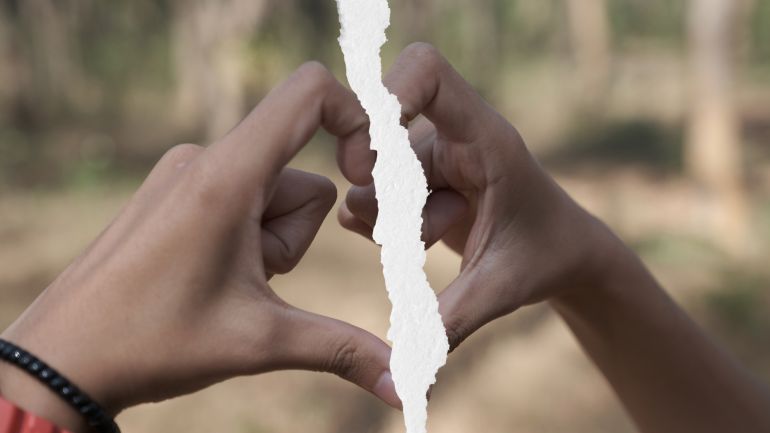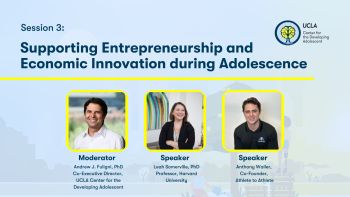When we held our first Love in Adolescence webinar in 2021, we discussed ways to support healthy romantic and sexual development in youth. While the butterflies and euphoric feeling of falling in love are things we wish we could hold onto forever, it is important to also acknowledge the loss that youth experience when relationships (sometimes) don’t work out.
That’s why in the second installment of our Love in Adolescence webinar series, Breaking Up: Love and Loss in Adolescence, we discussed the end of romantic relationships as learning opportunities, and suggested ways for adults to support youth through these experiences.
“For adolescents, suddenly you have these feelings of attraction, of sexual attraction, of physical attraction that you didn’t feel before when you were building relationships with with people,” said Dr. Ahna Suleman. “They get a lot of physical rewards, they get a lot of neurological rewards from just being in close proximity with people. And as a result, that heightened sense of awareness and appreciation also leads to a greater sense of loss.”
To help youth cope with this loss, our panelists offered many ways for adults to support youth, including validating their experiences, teaching them how to navigate their feelings, providing space and guidance to help them learn to take care of themselves, and encouraging honest and open conversations.
Although love, sex and everything in between may seem like awkward topics for adults to discuss with young people, conversations about these topics between parents and youth make a difference in sexual behavior. In general, support from parents and other caring adults can help us build resilience, develop a positive sense of self, and navigate challenges such as relationship breakups.
Navigating experiences of attraction, desire, love, and loss can help us learn how to nurture and identify healthy intimate relationships throughout our lives. For youth, reflecting on their relationships is a common part of counseling. “What’s healthy, what’s not healthy, really learning how to understand who they are, what their needs are and be in relationships,” our panelist Dr. Nicole Green shared. “There are a lot of questions early in their life, and they have these templates about what was a good relationship and what are challenging relationships… so a lot of folks are just trying to tease apart, ‘who am I in this relationship?’”
Dr. Ahna Suleiman also shared that it is important for adults to refrain from minimizing the importance of romantic relationships. “One of the things we need to recognize is the significance of these romantic relationships for young people. Very often adolescent relationships are minimized, and not seen as these seminal events that young people are experiencing, and so embracing them is really important.”
Finally, our panelists suggested that adults encourage youth to reflect on their relationships, whether that be through journaling, meditating, or talking with friends. Let them take the time to consider aspects of the relationship, and ask questions like, “What did I learn about who I’m attracted to in the world? Who’s attracted to me in the world? Where did that come from? Why did that feel like love when it wasn’t really love, you know?”
Ultimately, breakups can hit hard. As caring adults, we can support young people to navigate these painful emotions and learn from these experiences in ways that support healthy relationships in the future.
In case you missed the webinar, be sure to check it out here, and learn more about ways to help youth in your life as they experience love and loss in adolescence.



